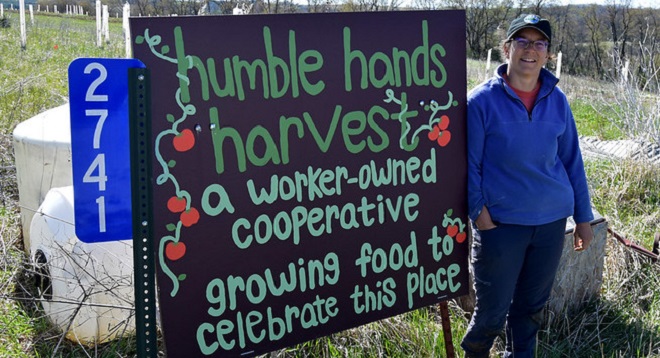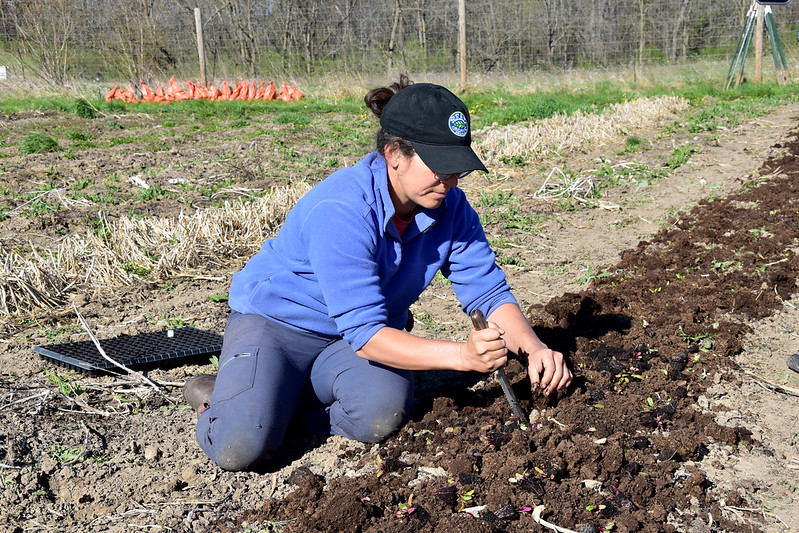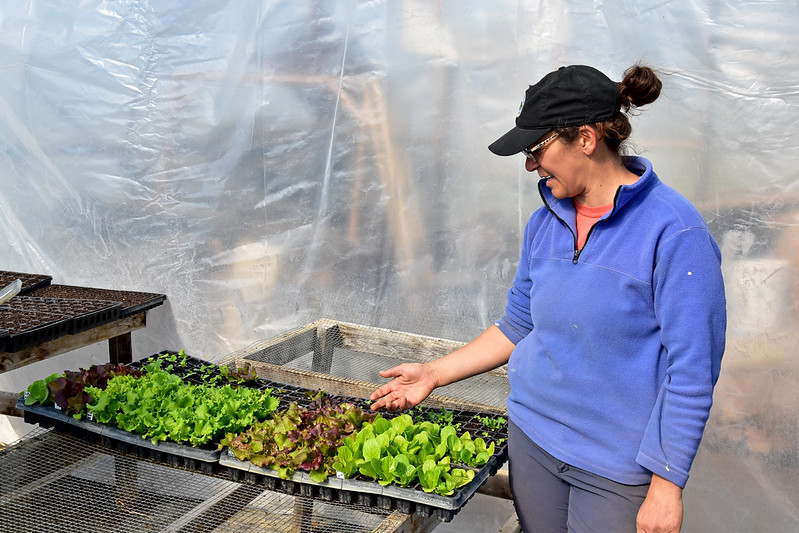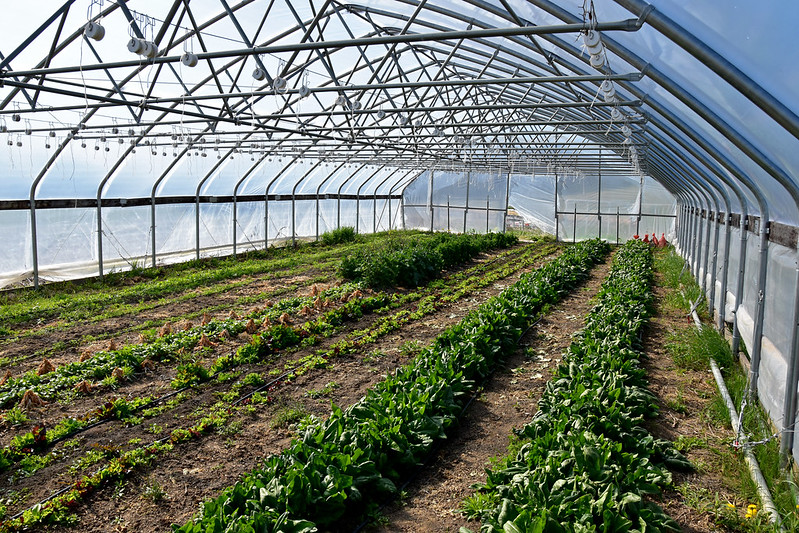Jun 22, 2023
Humble Hands Harvest supports new growers
Hannah Breckbill of Humble Hands Harvest in Decorah, Iowa, produces about 30 types of vegetables, fruit, nuts and grass-finished lamb on 22 acres.
The worker-owned, cooperative organic farm was established in 2016.
Non-traditional beginning
Many sets of helping hands, groups of supportive friends and well-timed opportunities, sit at the heart of Breckbill’s journey from Northfield, Minnesota-based Carleton College math degree graduate to queer organic farmer and beginning farmer advocate.

“It really was just being with the right people at the right times during this journey,” she said, while planting starter beet plants grown from seed at the farm’s greenhouse.
Beets are one of seasonal vegetables the farm sells at the local farmer’s market and to its community supported agriculture (CSA) customers.
After graduating from college, Breckbill decided she wanted to do something “real” with her life and help make the world a better place in a tangible way. In 2009 she interned as a CSA manager at World Hunger Relief outside of Waco, Texas. That one-year experience encouraged her to pursue a farming career and led her 400 miles from her hometown of Lincoln, Nebraska, to Decorah, Iowa, the hometown of her girlfriend at that time.
After several years of growing produce on rented or loaned land, an opportunity developed in 2014 to join a group of 20 friends and acquaintances to collectively purchase a former conventional corn farm near Decorah and begin converting it to a community-focused organic farm. Over the years, she and her farming partner and second cousin, Emily Fagan, have purchased the entire farm from the original group of collective owners.
Achieving organic certification
Another key opportunity, important to Breckbill’s success, is the Organic Certification Cost Share Program (OCCSP) through USDA’s Farm Service Agency. This program provides cost share assistance to producers and handlers of agricultural products who are obtaining or renewing their certification under the National Organic Program. Through OCCSP, certified operations may receive up to 75% of their annual certification costs, not to exceed $750.

“When I would sell vegetables at farmer’s markets, customers would ask if my vegetables were organic,” she said. “And that was a hard question to answer. I knew I wasn’t using any chemicals, and was using organic practices, but I couldn’t tell them they were certified organic.”
In 2017, she applied for OCCSP assistance to help defray the costs of organic certification, and she continues to participate in the annual recertification process.
“Every fall I get a call from my local FSA office, and they make it simple and easy to recertify,” she said.
In 2018, the operation applied for assistance to install a high tunnel through the Environmental Quality Incentive Program, administered by USDA’s Natural Resources Conservation Service. Produce grown in the high tunnel provides product for farmer’s markets and CSA customers at key times of the year.
Growing a sustainable future
The farm’s ownership structure has transitioned to a worker-owned co-op, which provides employees a direct path to farm ownership and an opportunity to build a life around farming. This model will also simplify a succession plan for the farm so it can continue with experienced, invested farmer co-owners.

Breckbill is building “something that will last for the long-term and is good to the world and caring for the land,” she said. Humble Hands Harvest also serves as an example that new or beginning farmers don’t have to match the ideals of the standard family farm.
“You can create the lifestyle and farm business that you want,” she said.
Challenging family farm expectations
As Breckbill worked to create, and continues to grow, Humble Hands, she said she experienced unique issues as an LGBTQI+ farmer.
“The main challenge that I associate with being a queer farmer is the societal and even legal expectations associated with ‘family+.’”
She noted LGBTQI+ people often have families that are different than the norm and aren’t always recognized as families by the rest of the world.
“Our farm is different from what people expect from a family farm because we’re two women who are not in a romantic partnership who own and operate the business together,” she said, referring to her farming partnership with her cousin. “Even just yesterday, I was on the phone scheduling some service for our truck. The person I was talking to asked: ‘So is this your husband’s business?’ It can feel fun to defy people’s expectations, but it can also be exhausting to constantly be misunderstood or assumed to be something I’m not.”

The role and importance of LGBTQI+ farmers are simple for her to explain.
“Queer people eat food! And we deserve to engage with the growing of food just like anybody else,” Breckbill said. “Queerness is about relationships, about creating the kinds of relationships that nourish you, and farming is also about that.”
More Information
Visit local farms, ranches, forests, and resource areas through our Fridays on the Farm stories. Meet farmers, producers, and landowners who are working to improve their operations with USDA programs.
USDA offers a variety of risk management, disaster assistance, loan and conservation programs to help producers weather ups and downs in the market and recover from natural disasters, as well as invest in improvements to their operations.
For more information about USDA programs and services, contact your local USDA service center.
— Laura Crowell is a public affairs specialist with USDA’s Farm Production and Conservation Business Center. This story is from the USDA’s Fridays on the Farm Blog.






